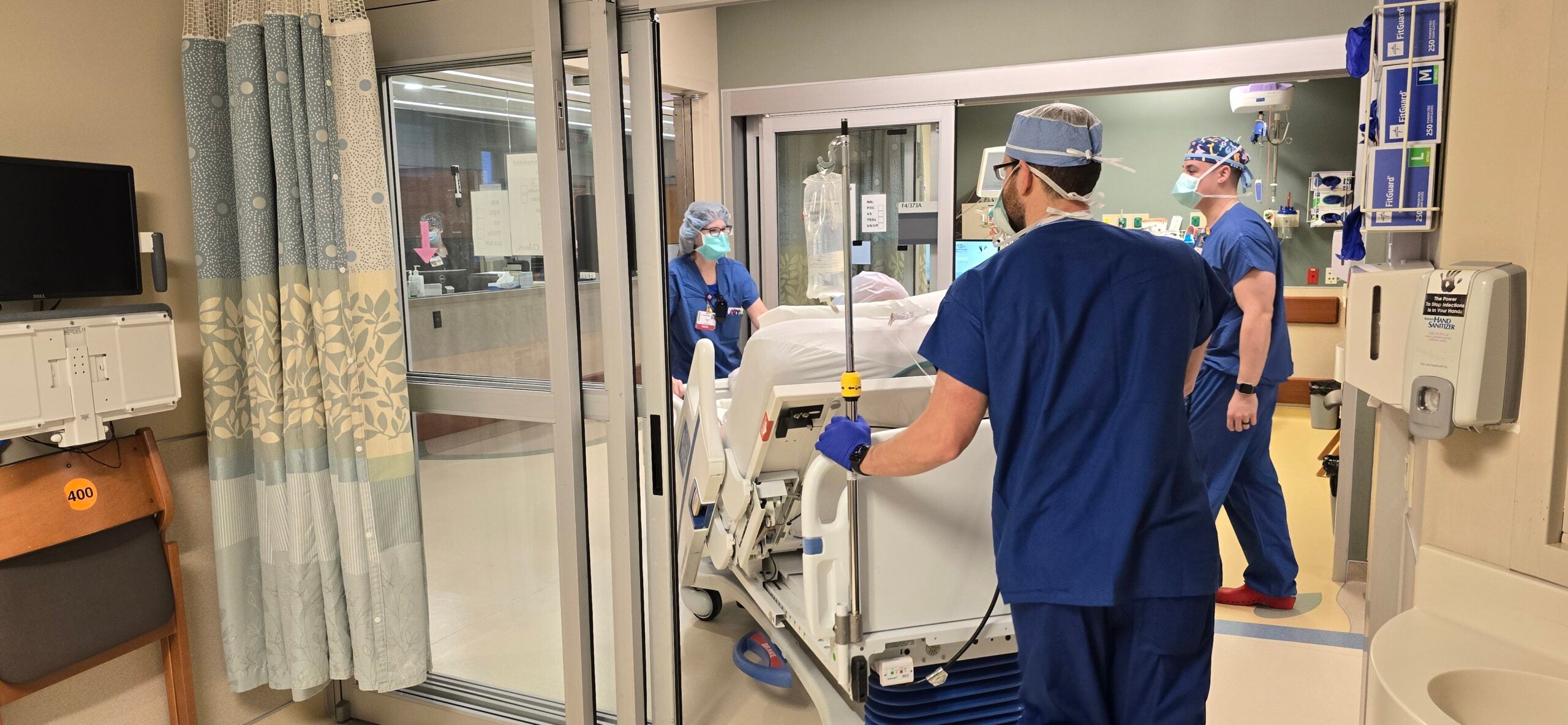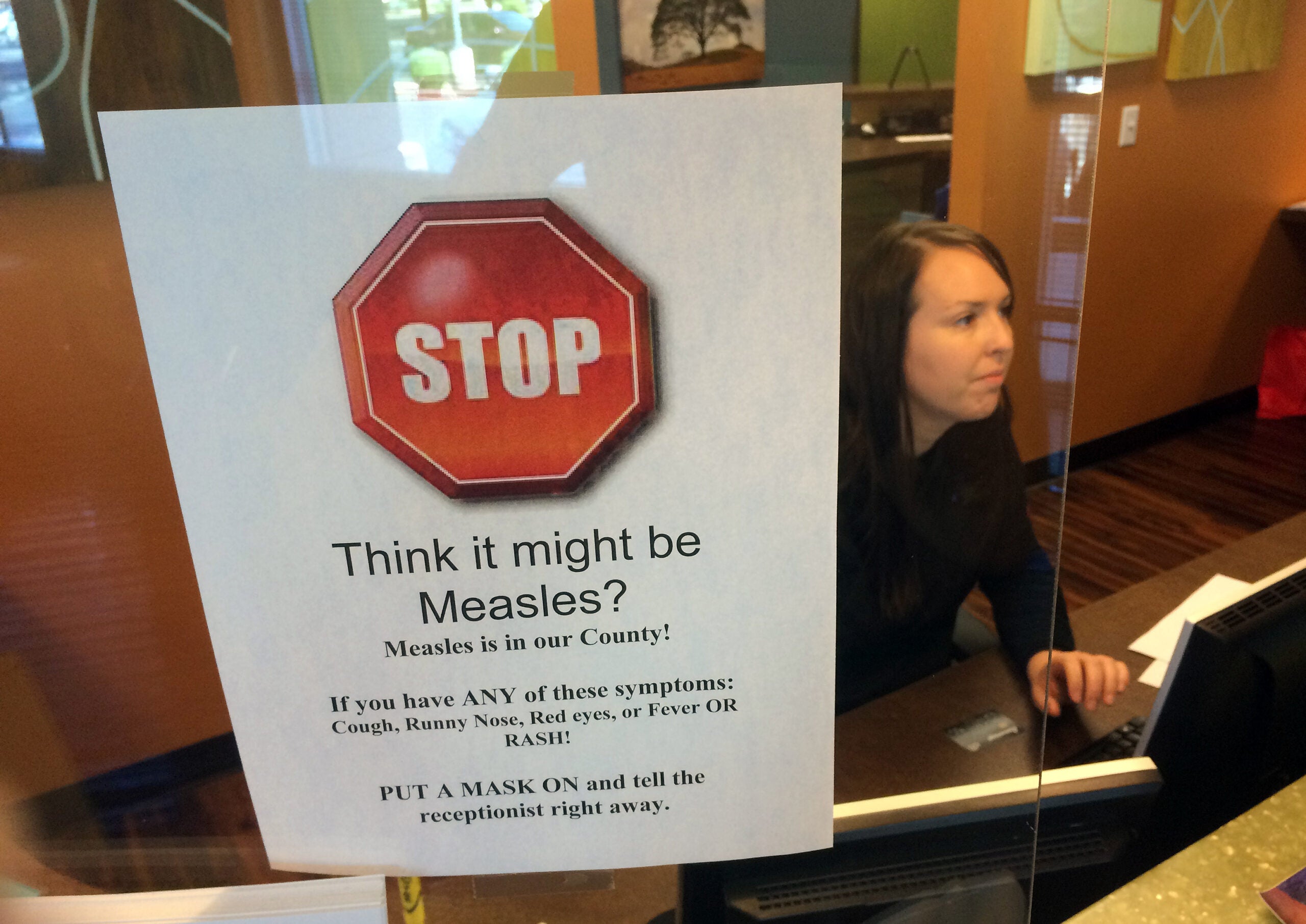When swine flu started circulating worldwide in 2009, Wisconsin and other states weren’t spared. So hospitals and health officials in Wisconsin want to be prepared if coronavirus gets worse.
“The biggest thing is going to be the personal protective equipment that health care workers will need in order to effectively take care of patients without being susceptible to the virus themselves. Things like masks, gowns and gloves,” said Nasia Safdar, medical director of infection control at UW Hospitals and Clinics.
The World Health Organization advises those without symptoms to save the medical masks for those caring for infected persons.
News with a little more humanity
WPR’s “Wisconsin Today” newsletter keeps you connected to the state you love without feeling overwhelmed. No paywall. No agenda. No corporate filter.
In Milwaukee, hospitals are also monitoring the evolving outbreak. Officials are taking standard infection precautions, asking patients about recent international travel, reporting those exposed to COVID-19 to local health departments and urging people to prevent the spread of disease through hand washing and other means.
”We remind our health care employees and visitors to wear appropriate protective equipment when patients are in isolation. Froedtert and the Medical College of Wisconsin reminds patients who have symptoms of respiratory infections, such as coughing or runny nose, to cleanse their hands and put on a mask when they enter our hospitals or clinics,” said Mary Beth Graham, the medical director of Infection Prevention & Control at Froedtert Hospital.
The United States has had person-to-person transmission of the new coronavirus — or COVID-19 — along with travel-related cases. So far the effect of COVID-19 has been limited. But the virus is starting to spread more quickly in other countries like Iran, Italy and South Korea, and it’s not known how or where they became infected.
Concern over community spread has U.S. health officials advising businesses, schools and individuals to prepare in the event COVID-19 gets worse. The disruption to daily life could be severe with the potential for business and school closures, the postponement of some elective surgeries, or the cancellation of community events.
“We expect we will see community spread in this country. It’s not so much a question of if this will happen anymore, but more of exactly when and how many people in this country will have severe illness,” said Nancy Messonnier, director of the National Center for Immunization and Respiratory Diseases.
There have been 14 confirmed COVID-19 cases reported in the U.S. and an additional 39 cases among persons repatriated to the U.S., according to the CDC. Wisconsin has had one person in Dane County with the virus. And another person in the state has been tested but results haven’t come back.
Federal officials are tracking the supply of medical equipment like needles and syringes. There’s also concern that certain medicines made in China or India could become limited if production stalls.
“I think there’s definitely a concern. We have not experienced this at this point. There is the possibility things we take for granted we may have difficulty accessing,” said Safdar.
The virus is believed to be transmitted through the air but how easily COVID-19 is transmitted is currently unclear, according to the CDC. Symptoms include fever, cough and shortness of breath, and occur two to 14 days after exposure.
The National Institutes of Health has started a clinical trial of Remdesivir to treat COVID-19. Patients with COVID-19 are being enrolled in the trial in Nebraska.
As of Feb. 24, the WHO has reported 77,262 confirmed cases of COVID-19 and 2,595 deaths in China; and 2,069 cases of COVID-19 and 23 deaths in 29 other countries.
Wisconsin Public Radio, © Copyright 2025, Board of Regents of the University of Wisconsin System and Wisconsin Educational Communications Board.






